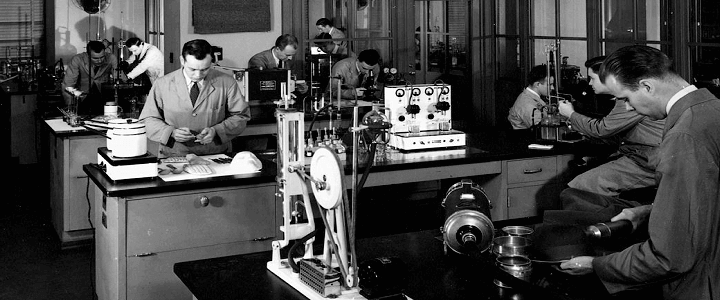There was plenty of hyperventilating, not to mention hyperbole, following President Donald Trump’s Terrible, Horrible, No Good, Very Bad Day in Helsinki on Monday. Yesterday, I covered the absurd assertion that the president’s inability to confront Russian President Vladimir Putin somehow rises to the level of treason. Another favorite Twitter screech heard several times was that… and I swear I’m not making this up… “the Rosenbergs were executed for less.” Several people made this comment Monday, and a quick Google search reveals that the charge has been going around ultra-partisan circles for a while now.
But that’s not true. So it’s time for another installation of the Daily Intel history lesson.
A WORLD turned upside down
Julius and Ethel Rosenberg were executed in 1953 after their conviction for violating the Espionage Act. The U.S. was the world’s only nuclear power from the Trinity test detonation in 1945, until the Soviet Union detonated its own weapon in 1949. The Rosenbergs, dedicated communists, led an American spy ring that provided highly classified information about the construction of an atomic weapon to the Soviet Union.
Recall that in the years following the end of the Second World War, the Soviet Union was imposing Stalinism, its oppressive brand of communism, across Eastern Europe, dropping what Winston Churchill called an “Iron Curtain” along the western edge of its sphere of influence. With the breakout of the Korean War—as much a fight between the U.S. and the at that time still-allied Soviet Union and People’s Republic of China as a fight between two Korean factions—the possibility of a Third World War seemed to be a very real possibility.
Julius Rosenberg was guilty as sin. He was the undisputed ringleader of a group of spies that gave away their country’s most sensitive technical information to the country’s largest geopolitical adversary. Ethel was aware of her husband’s activities, although many still argue that she was not an active participant. She was however, responsible for bringing her brother, David Greenglass, into the Communist Party, and then into the spying business.
In the words of chroniclers Donald Radosh and Steven Usdin, “She and Julius may not have deserved the death sentence, but she was not innocent.”
Stealing the nation’s atomic secrets
Julius was born in New York and worked as a machinist at the laboratory in Los Alamos, N.M. where scientists built the world’s first nuclear weapons. David Greenglass was an Army sergeant assigned to the Manhattan Project. According to the FBI’s official history of the case, at Rosenberg’s urging, Greenglass “made sketches of experiments, wrote up descriptive material regarding them, and prepared a list of possible recruits for espionage.” He gave these materials to a man named Harry Gold.
The FBI identified Gold following the February 1950 arrest of Emil Fuchs, a German-born atomic scientist living in England. Gold served as the courier for the nuclear secrets Fuchs had smuggled out of Los Alamos. He was arrested in May of 1950 and soon confessed to his role in the conspiracy. For his part, Greenberg was arrested in June of 1950 and also quickly confessed, giving his testimony to a grand jury. Later, while on the witness stand, he drew a sketch of the implosion-type warhead used in Nagasaki, Japan.
Gold was the courier, but Julius Rosenberg ran the show. Following the trial, Greenglass was sentenced to 15 years in prison, Gold to 30 years, another co-conspirator, Morton Sobell, to 30 years. The Rosenbergs were sentenced to death.
Controversy and later confession
Following their execution, the Rosenbergs became a rallying point for those who felt that anti-communist fervor was going too far in the U.S. For decades, left-wing apologists have insisted that the government executed the Rosenbergs simply because of their unpopular political opinions.
This, coupled with the lingering doubt over Ethel Rosenberg’s culpability, is likely where the uninformed are getting the idea that they were executed for less than what Trump did in Helsinki on Monday. Rubbish.
Morton Sobell was released from prison in 1969 and is still living in New York city at the age of 101. He maintained his innocence long after his release, but changed his tune in 2008. When a reporter for the New York Times asked him if he had in fact been a Soviet spy, he replied candidly, “Yeah, yeah, yeah, call it that. I never thought of it as that in those terms.” He did, however, maintain the Ethel Rosenberg was not an active player in the conspiracy.
In 1995, following the fall of the Soviet Union, KGB messages and Czechoslovakian intelligence documents laid to rest any notion of Roseberg innocence. Not only was Julius Rosenberg the leader of the spy ring, but he’d began his career as a Soviet spy even before the German invasion of Russia in 1941.
One important fact to note, here, is that the Rosenbergs were not charged with treason, since the Soviet Union was not, as Russia is not now, an “enemy.” They were charged under the Espionage Act, which only requires providing classified information to a foreign government regardless of that government’s degree of friendliness with the U.S. (Recall that Jonathan Pollard was sentenced to life in prison in 1987 for stealing Top Secret information and giving it to Israel).
The information that the Rosenbergs and their co-conspirators provided was instrumental, even critical, to the Soviet Union’s development of its nuclear arsenal. While certainly they would have figured it out on their own eventually, the Rosenbergs saved them years of work. And yet somehow, people think that Trump’s awkward press conference where he refused to criticize another world leader to his face is a greater offense against the nation?
America, we need to gain a little perspective.




